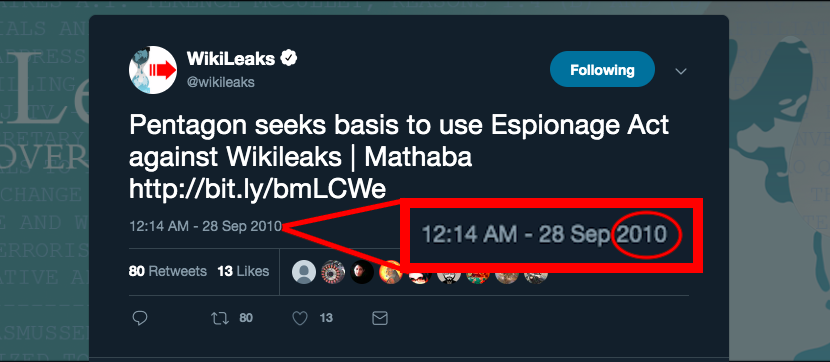ORIGINAL LINK
Political events in recent years have crept over the postwar order like dark clouds, and the heavy air has shaped public discourse and sensibility in ways that are unexpected and confounding. Words recited in the headlines every day give us a litany of agitation or exhilaration: Trump, Brexit, Populism, Impeachment, Social Media, Social Justice Warriors, #MeToo, Alt-Right, Troll Farms, the Death of Journalism, the Rise of Authoritarianism, Fake News, ISIS, and so on.
A perceptive insight into this landscape has come from the “Intellectual Dark Web” and other commentators found on various internet platforms: we are facing a crisis of sense-making. The incongruity of decisions made in institutions against public feeling derives from a failure of individuals in society to make sense of the world together. It’s not hard to find an ostensible cause. The internet has transformed the medium of public discourse, with profound implications for how ideas and opinions are shaped and spread. At the same time, certain economic and cultural processes have begun to generate big problems for which we don’t yet appear to have solutions. What are we going to do about climate change? Income inequality and the lingering effects of the Great Recession? The attrition of religious feeling and communal experience?
The first impulse, typically, has been to understand these changes in purely political terms. And so, in this telling, the crisis in sense-making is merely a series of political conflicts, with winners and losers. But politics is too flat and too superficial to comprehend the processes that, like a tide, seem to move our fixations from below. This is because, in reality, these changes, when viewed systematically across a population, or even the whole world, are operating on multiple levels simultaneously—geographic, epochal, ecological, cultural, economic, social and political—and any part of what we may want to observe can be distinguished, with great delicacy, by a degree of contingency, and by a web of fractal relationships with everything else involved.
An honest result does not lend itself to rhetorical binaries and zero-sum struggles. And so when public discourse focuses on the political, and its Left and Right binaries, our priorities become scrambled, and our conclusions misallocated. If we look for examples in an American context, I worry about cases like the refusal of Republicans to hold hearings on Supreme Court nominee Merrick Garland, motivated in no small part by the opposition of evangelical voters to the legality of abortion; a religious concern for sexual proprietary, with abortion as its emblem, does not justify such an unprincipled trashing of institutional norms. On the liberal side, the firing of James Damore from Google demonstrated that aggressive “equity” initiatives in corporate hiring or promotion can create a toxic political atmosphere in what should be a more purely social space, with an economic focus.
I’m not interested in litigating these particular examples—I mention them merely to point at concrete instances that are, to me, concerning and synecdochal. The reader can find his own examples, if he dislikes these. Instead, I would like to propose a series of principles for a new sense-making in public discourse, and suggest that political action, for the time being, should be antedated by an application of these principles among the conscientious.
The Personal Is Not Political
One of the great mistakes of ’60s and ’70s radicalism was the idea that “the personal is political.” There is some merit to the feeling behind this slogan: both formal policies and cultural attitudes can have a profound effect on the fate of individuals, especially those whose physical or emotional lives do not fit neatly into conventional social frameworks or power structures. However, simply noting that two domains are impacted by one another does not justify conflating them.
Politics exists because people have different values and interests (for whatever reason), but we have to live near each other, and there are limited resources that must be shared if violence is to be avoided. We’re also a social species and so we depend on one another for common endeavors and for mating. Politics demands that there be compromise among individuals or groups, given conflicting interests, and that, through some kind of social process, an accommodation is found for every party involved. Our institutions are built out of the repeated necessity of finding these accommodations. “Political idealism,” as it is usually understood, is something of an oxymoron: the ideal of any political process is compromise.
Meanwhile, the personal sphere has different concerns, and they center around the unique fate of each individual. Will I fall in love? Do I get along with my family and neighbors and colleagues and friends? How are my children doing? Am I invested in my house or my city? Do the things I do every day—my work, my hobbies, my physical habits, my involvement in a local community—do these things have meaning? The answers to these questions, ultimately, have to be decided by individuals, or between individuals, or within local communities. And the ideal of the personal should not be compromise, but self-actualization.
Corruption Matters
Centrist pundits love to beat up on tribalism; lamenting the current media environment of sharp partisanship and extrinsic ideological conflict is de rigeur among “reasonable” commentators. However, this masks the real problem embedded in tribalism: not the anger and simmering violence it generates, but the corruption it enables.
The word corruption often conjures images of a man in a trench-coat passing out brown envelopes of money for contracts or favors. However, in America, this sort of thing isn’t nearly as pervasive or harmful as it has been in other places and other eras. Corruption can be subtle, and it can be enacted through public kabuki rituals that are not illegal on their face; corruption, nevertheless, is always unethical, and it always has the insidious potential to proceed step-wise through a whole society.
The classic corrupt political maneuver of recent decades involves politicians who overtly signal for policies that favor narrow special interests and receive large donations to their campaigns or to affiliated organizations from those interests, without having to make an explicit ask. In American government, everything from the military industrial complex to student loans to health insurance has this stench. Other countries, no doubt, have their own version of this. It also can permeate the private sector. Large companies often gain enough market clout to exploit their customers, vendors, and employees. In general, policies and business decisions that encourage rent-seeking, tax avoidance, and environmentally destructive behavior are deeply corrupt, regardless of the legality of such actions, and this should effect how we participate in our institutions.
In Policy, Outcomes Are More Important than Identity
Tribalism not only blinds us to corruption, it also disorders our expectations about what institutional processes are meant to achieve. Institutions are not merely intended as vessels of belongingness. Some may offer this as a fringe benefit, but, fundamentally, institutions have a purpose to fulfill in their actions, and they lose their reason for being when that purpose is not ethical, or necessary and clearly circumscribed. Humans should seek belongingness first from family and from friendships, and even where membership in some organization may be gratifying, the actions of the institution have to be differentiated from the feeling of membership itself.
When politics hinges on affirmations of identity, the institutions of politics, the government and its appendages, are no longer seen as the means by which compromises can be crafted among competing groups or individuals. Policy, then, becomes a mode of self-expression, and any degree of narcissism can find its justification in an ideology and its prescribed policies. The best response to a lot of what passes for political argument is: Get over yourself!
The entailment from policies to outcomes is largely empirical and testable. We should fully expect to have conflict and compromise with regard to preferred outcomes, but no one should listen to uninformed chowderheads trying to persuade us of bad ideas for the aggrandizement of an identity.
Religious Feeling Can Only Be Satisfied in a Local Setting
Religion allows for individuals to orient their emotional lives in ways that align with the basic social prerogatives of their respective communities. When a religion is able to express, iconically, the spiritual feeling of a time or a place, it allows for the individual, there, to experience a profound sense of belongingness and meaning. There has been an unfortunate tendency, since the Scientific Revolution, to reduce religious practice to a rehearsal of belief, as if the symbolism and feeling endowed in communal rituals were a compulsion of what can and cannot be known, in some deterministic sense. Feeling is not in what is known, except to the extent that wisdom might let us know something about feeling.
Religious identification has been in decline for decades now all over the world, but especially in Europe and America. It has been proposed that the politics of identity or of other ideologies have stepped into this breach. There may be some truth to this and, if so, then it is a dangerous truth. At a minimum, we should be concerned about decadence and empty hedonism in a world without the iconicity of purpose. I want to suggest, however, that this emotional need cannot be fulfilled at a high social level, and that most of the public discussion about religion is focused on the wrong things.
It’s not clear that poorly attended churches preaching millennia-old doctrine are relevant to a post-industrial world, nor should we be inspired by the obsession of fundamentalists to enforce sexual proprietary through law or violence. Big, capitalized terms like “Western Civilization” or “Eastern Spirituality” don’t really have anything concrete to offer us. The images projected at us through TV and the internet have been made into spectacles for entertainment.
Instead, we must look around us, and find meaning in our immediate surroundings, in people we meet face-to-face, and in actions that bring value to our personal lives. Whatever is beamed to us on the news every day should not be of profound emotional interest.
Spend as Much Time Cross-Examining Your Own Soul as You Spend Excoriating or Venerating Public Figures
Does this require elaboration? Who among the outraged has a deeply satisfying personal life? Who is driven to publicly perform their feelings, but an actor?
A Society’s Success Should Be Judged in Millennia
Despite everything that has been learned about long stretches of time in the history of the earth and of the cosmos, we’re obsessed, culturally, with “moment time.” There is something to this, psychologically: the individual has every reason to devote considerable attention to the events that make up his or her day, and what can be remembered, verbally, among friends and family, at most, around the span of a decade or two. As I just argued, this is what should occupy our emotional lives. However, the awesome power of technology, in an industrialized economy, has unleashed the terrifying possibility that we could liquidate civilization through nuclear war or environmental destruction within a few generations. Our goals and our values are not only emotional, and so when we are a little more clear-eyed about the wider world, our actions must be framed in civilizational terms, across hundreds, thousands, or even hundreds of thousands of years. Only through such a perspective can humans take responsibility for themselves at this time in history.
Our Intellectual Systems Are Theoretically Stagnant and Need New Ideas
The academy and other institutions mostly produce intellectuals who fall into two categories: jackals and rabbits. Jackals misuse their knowledge for political ends or for self-aggrandizement, and are attracted to ideas dead and decomposing. Rabbits patiently munch away at small problems while nervously avoiding the unknown, and are admitted to run and hide when approached by strangers.
There have been great intellectual triumphs in recent centuries, and amazing work is being done right now on scientific applications to produce technology. But theoretical work across disciplines has stagnated, and this makes febrile soil for conspiracy theories, ideology, and the idiocies of the weak-willed and wicked. Many feel entitled to their opinions above the exigencies of having to learn. All the while, so many essential questions remain unanswered, either because we pay them no mind, or because we have no fresh ideas. How do we account for the subjectivity of consciousness in physical terms? What is rhythm? Why are we taught that there are three observable dimensions of space and one linear dimension of time? How is paralanguage related, structurally, to music? What, exactly, are grammatical categories? What is “information”? We have a solid Darwinian theory of function—where is the complementary theory of form, and which is more basic? What is “life”?
I might posit here another category of intellectual, the platypus. We need a venomous, duck-waddling, semi-aquatic, egg-laying mammal, the last of its kind, the first comedian of Dream Time. Someone with a completely new idea of an old feeling, and enough sense of irony to communicate it. It’s very hard to make fundamental progress on big intellectual problems, and even the most talented among us can fail through no intrinsic fault of their own. But, socially, we must make a place for the awkward, original platypus, whether or not he succeeds. Or ours will be a kingdom of jackals.
One might say that at least some of these principles are self-evident banalities. Yes! Principles are platitudes! But each one of us must be reminded of them, from time to time, when we’ve forgotten the melody. Or the squawk of the platypus. Yes!
Jeffrey Quackenbush lives in the White Mountains of New Hampshire, and works in the renewable energy industry.
Photo by Jeremy Thomas on Unsplash
The post The Crisis of Sense-Making appeared first on Quillette.
via
IFTTT














